Dragon fruit farming, also known as pitaya cultivation, is not like growing regular crops. It’s more technical, more hands-on, and definitely more rewarding when done right. Especially in places like Himachal Pradesh where the weather is cooler and the terrain can be challenging, the right tools can really make your job easier and more effective. In this guide, we’ll explore 10 essential dragon fruit farm tools that every beginner dragon fruit farmer in Himachal should have.
Dragon Fruit Farm Tools: Top 10
1. pH Meter
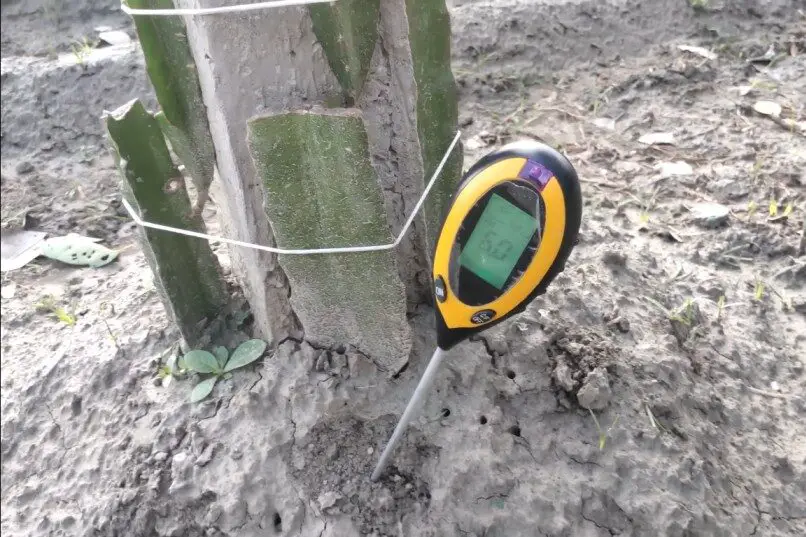
What it is: A pH meter is a small device—digital or analog—that helps measure the acidity or alkalinity of your soil. it’s very important part of dragon fruit farm tools It’s commonly used in gardening and farming to test soil health.
Why you need it: Having the correct soil pH is crucial for nutrient absorption. Dragon fruit prefers a pH between 5.5 and 7. If the pH drifts outside this range, essential nutrients like phosphorus and iron may become unavailable to the plant, even if they’re present in the soil.
With a pH meter, you can take regular readings and adjust the soil using natural amendments like lime (to increase pH) or compost (to lower it). In Himachal, where soil pH may vary depending on elevation and rainfall, this tool helps you stay in control. Without it, you might waste time and money on fertilizers your plant can’t even absorb.
2. Soil Moisture Meter
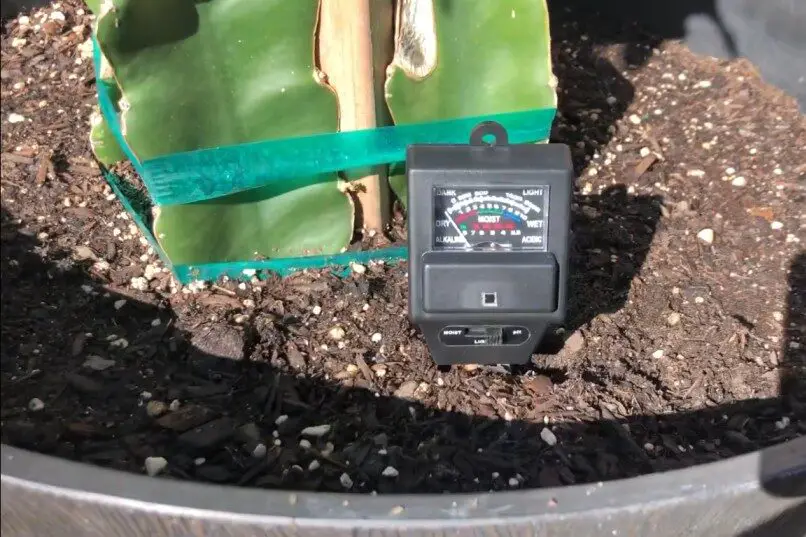
What it is: A soil moisture meter is a tool that tells you how wet or dry your soil is. It usually has a probe that you insert into the ground and a display to show the moisture level.
Why you need it: Dragon fruit plants are cactus-like and do not like sitting in wet soil. Overwatering can lead to root rot, especially in Himachal where rainfall may suddenly spike. A moisture meter helps you avoid this mistake.
By knowing exactly when to water, you can prevent water stress. This not only saves water but also ensures healthy root growth and fruiting. Instead of relying on guesswork or touching the soil, you get precise data that leads to better decisions and healthier plants, so don’t forget to include this in dragon fruit farm tools list.
3. Gardening Gloves
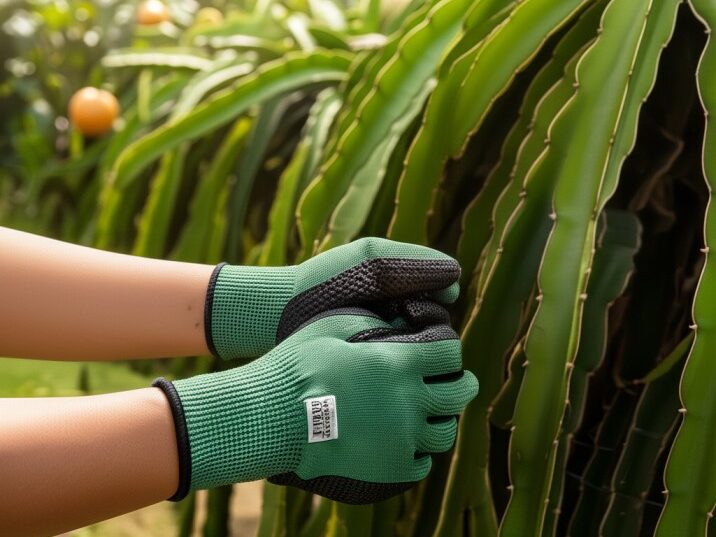
What it is: These are gloves made from materials like rubber, leather, or fabric designed to protect your hands during gardening tasks.
Why you need it: Dragon fruit plants have thorns and rough skin that can easily cut your hands. When you’re handling plants, removing weeds, or applying any treatment, gloves keep you safe, that is why it is essential to add this to dragon fruit farm tools kit.
Without gloves, you’re at risk of injury, infections, or even allergic reactions. Comfortable gloves allow you to work longer without fatigue or pain it’s very important farm tools and equipment. In cold Himachal mornings, they also help keep your hands warm while you work.
4. Cutter
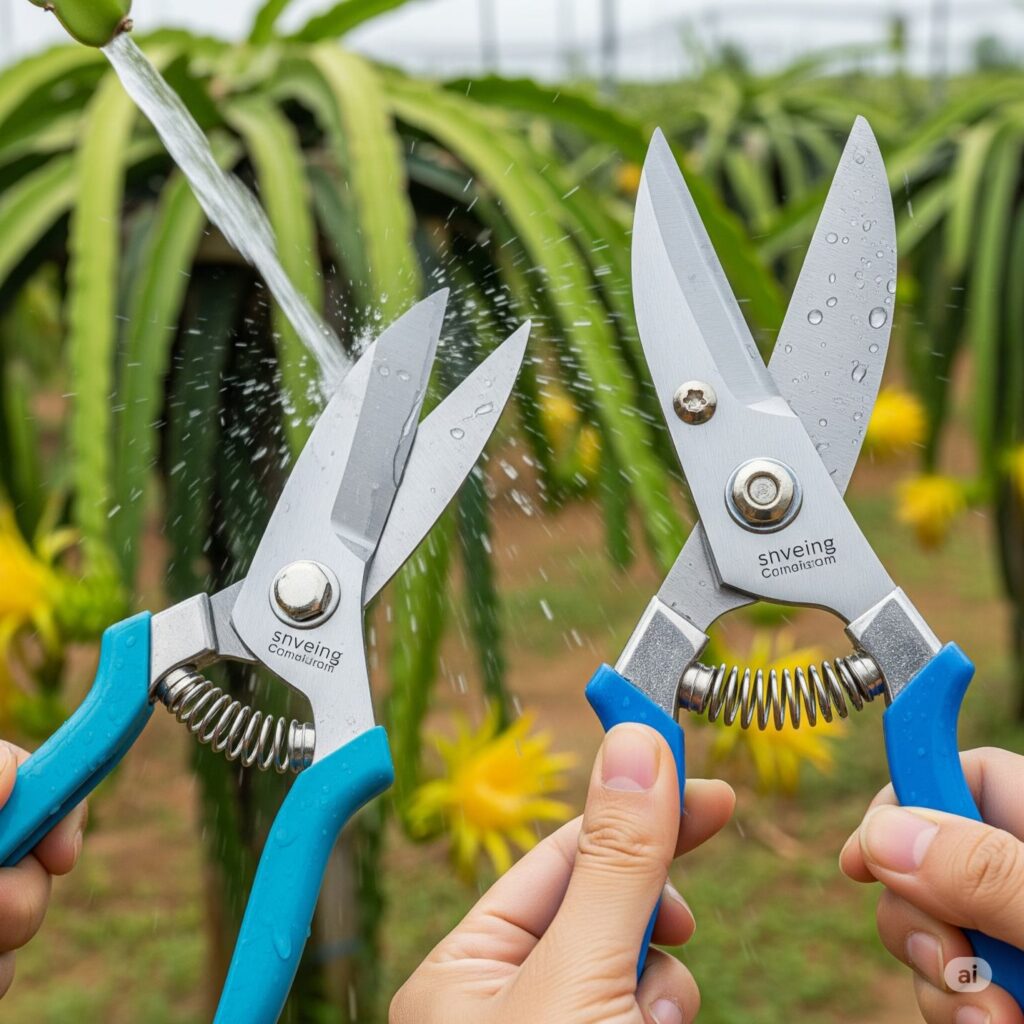
What it is: A cutter is a sharp gardening tool—often similar to pruning shears—used for trimming stems, branches, or harvesting fruit.
Why you need it: Dragon fruit grows fast and needs regular pruning to stay healthy and productive. A clean cut encourages faster healing and prevents disease entry points.
Using a sharp, high-quality cutter ensures you don’t crush the stems, which can invite rot. its a must have dragon fruit farm tools. You’ll also need this tool during harvesting. In a place like Himachal where the growing season is precious, every healthy stem counts—make sure you’re not damaging your plant with poor tools.
5. Thread
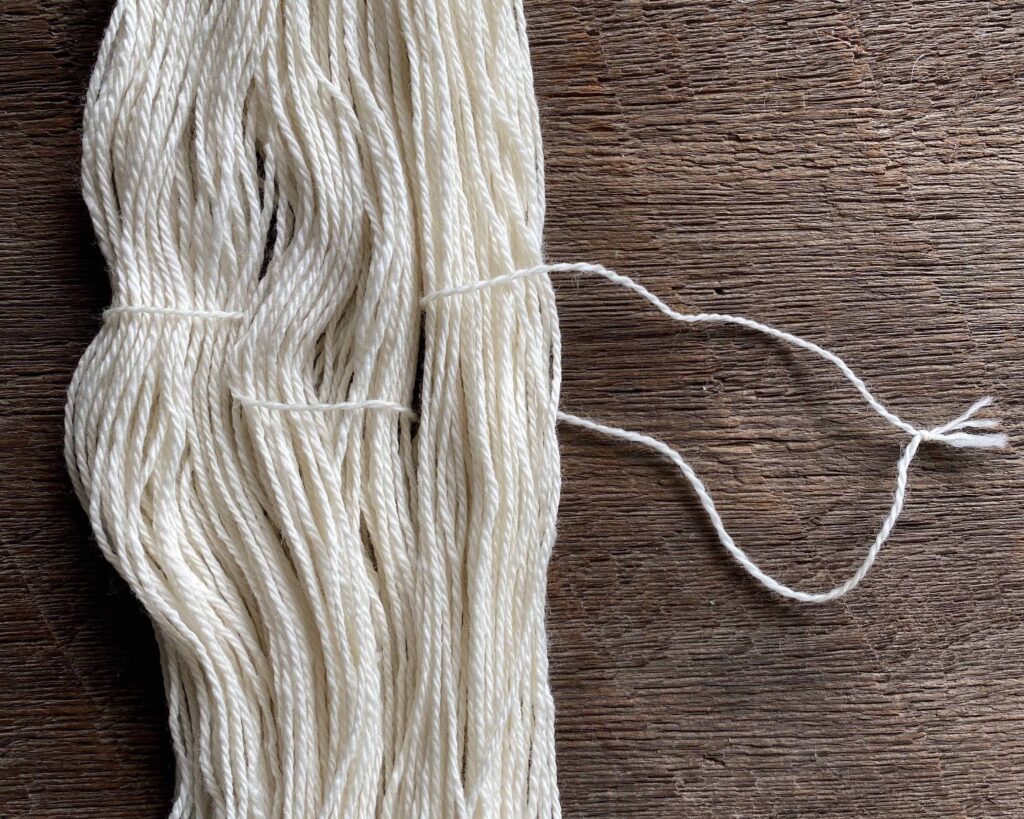
What it is: A soft, strong string usually made of cotton or jute, used for tying plant stems to support structures.
Why you need it: As dragon fruit vines grow, they need guidance and support. Soft thread allows you to gently tie stems to cement or bamboo poles, helping them grow upright.
Using harsh materials like plastic wire can wound the plant, leading to infections. Especially in windy Himachal regions, good tying prevents stem breakage. It also helps organize your field, making it easier to walk through and manage.
6. Auger
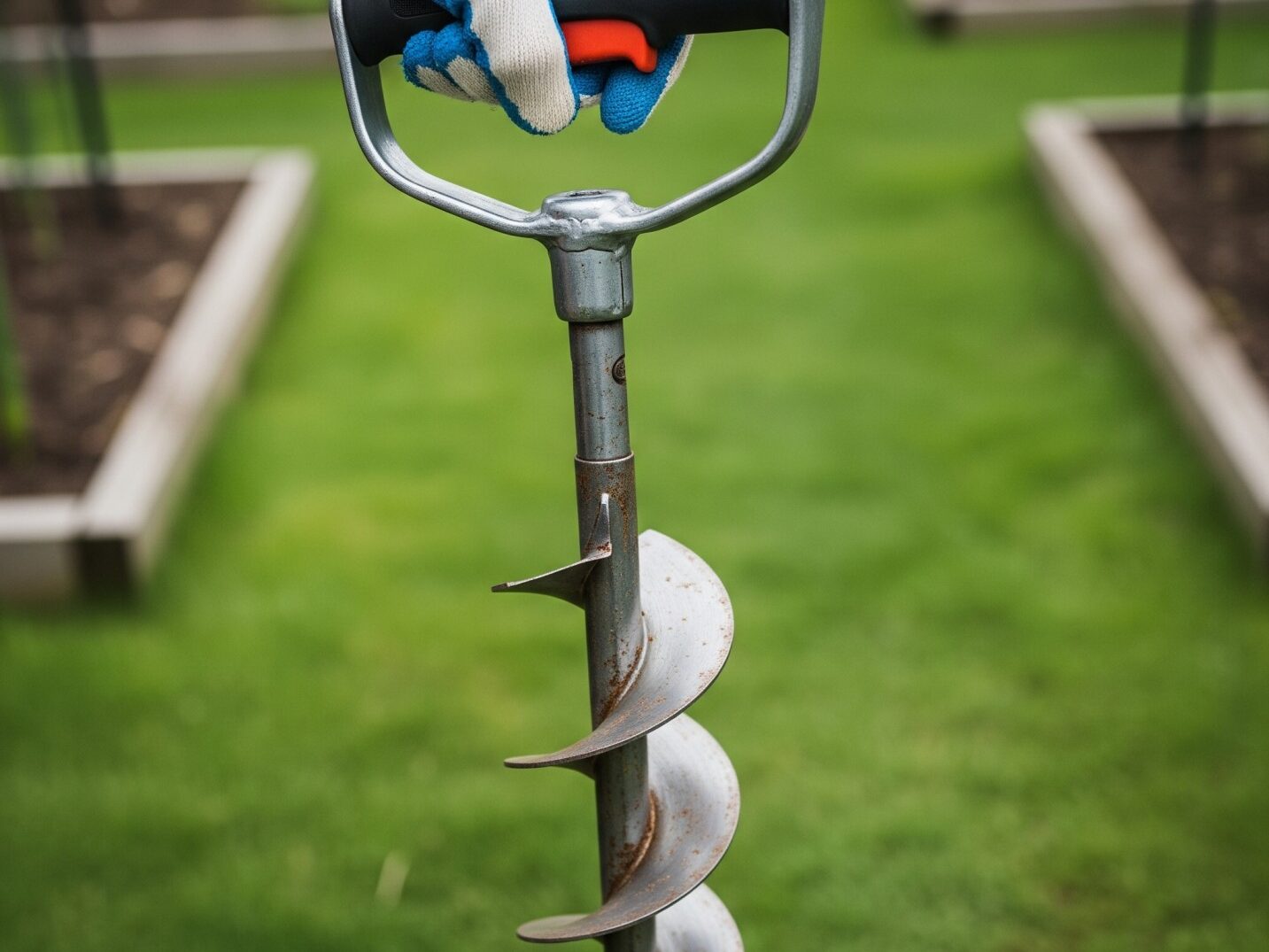
What it is: An auger is a tool used for drilling holes into the ground. It comes in manual and electric versions.
Why you need it: When you’re installing cement or wooden poles for plant support, you need deep, consistent holes. Digging them by hand is labor-intensive and inconsistent.
An auger saves time and energy. It ensures each hole is of equal depth and width, improving plant support. I have this dragon fruit farm tools. Especially if you’re planting on a hillside in Himachal, where manual digging is tougher, this tool becomes invaluable.
7. Electric Spray Pump
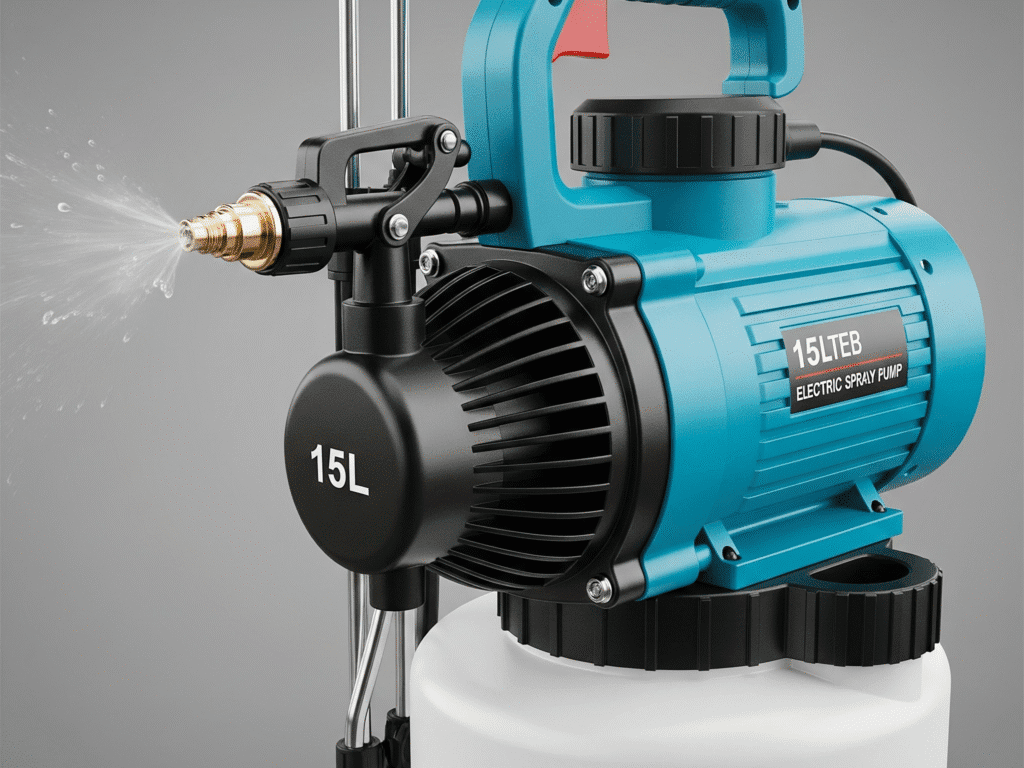
What it is: A rechargeable, battery-powered sprayer used to apply fertilizers, pesticides, or foliar feeds.
Why you need it: Dragon fruit farming requires regular spraying—be it for pests, diseases, or foliar feeding. Doing this manually can be exhausting and uneven.
An electric sprayer covers more area in less time and with less effort. In Himachal’s sloped fields, climbing with a manual sprayer is tiring. An electric pump helps you spray uniformly and efficiently, protecting your crop and saving your back. A must have need for the dragon fruit farm tools
8. 200-Litre Drum
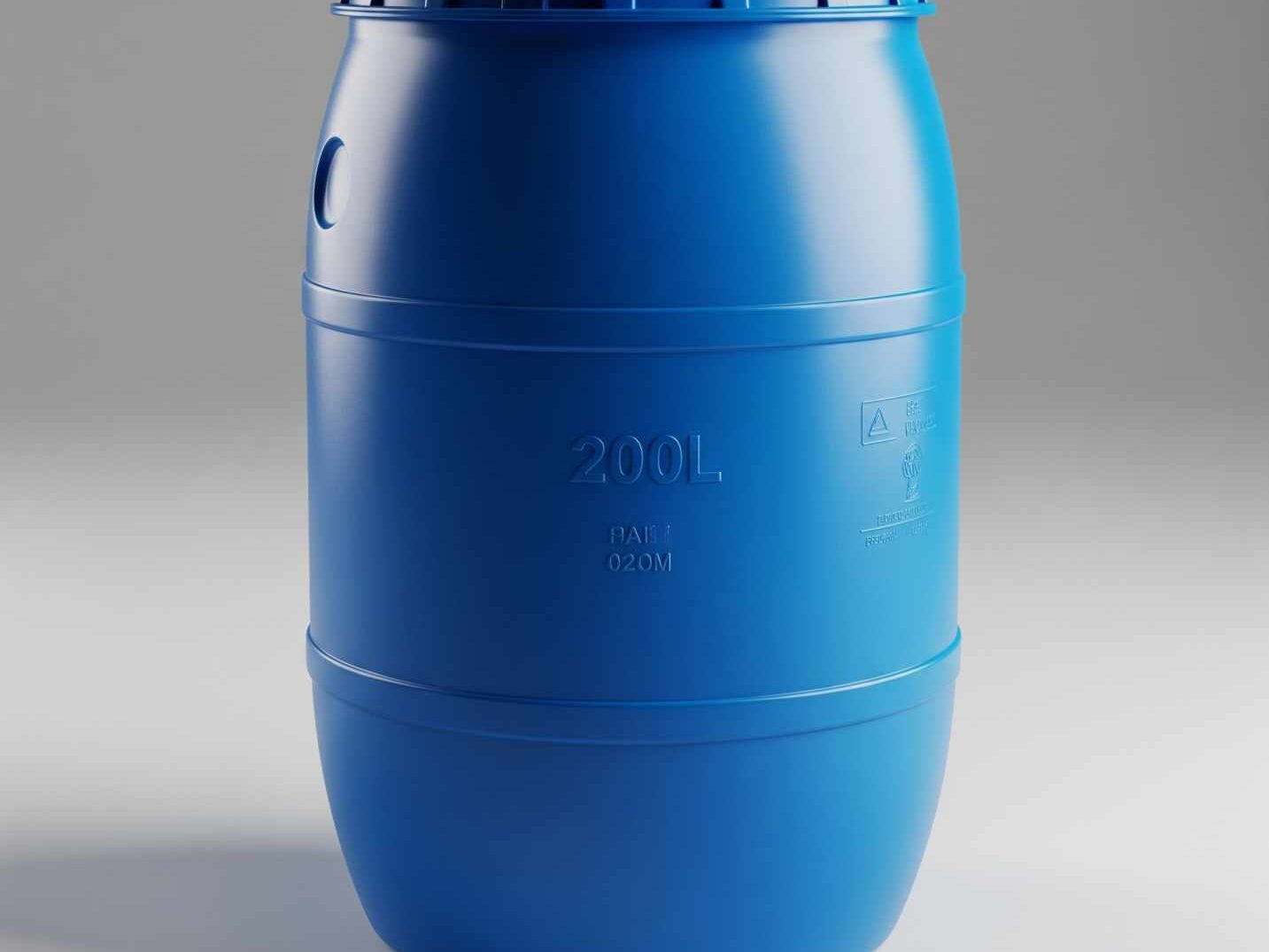
What it is: A large plastic barrel used to mix, store, and distribute liquids like compost tea or fertilizers.
Why you need it: without having a drum feels incomplete, dragon fruit farm tools top priority. Making compost tea, bio-enzymes, or natural liquid fertilizers is common in organic dragon fruit farming. A 200-litre drum helps you prepare and store these solutions in bulk.
Instead of mixing in small batches every day, prepare once a week and save effort. It also allows for better fermentation. In Himachal’s cooler climate, keeping your mix at a stable temperature in a drum helps it work better.
9. Weed Remover Tool
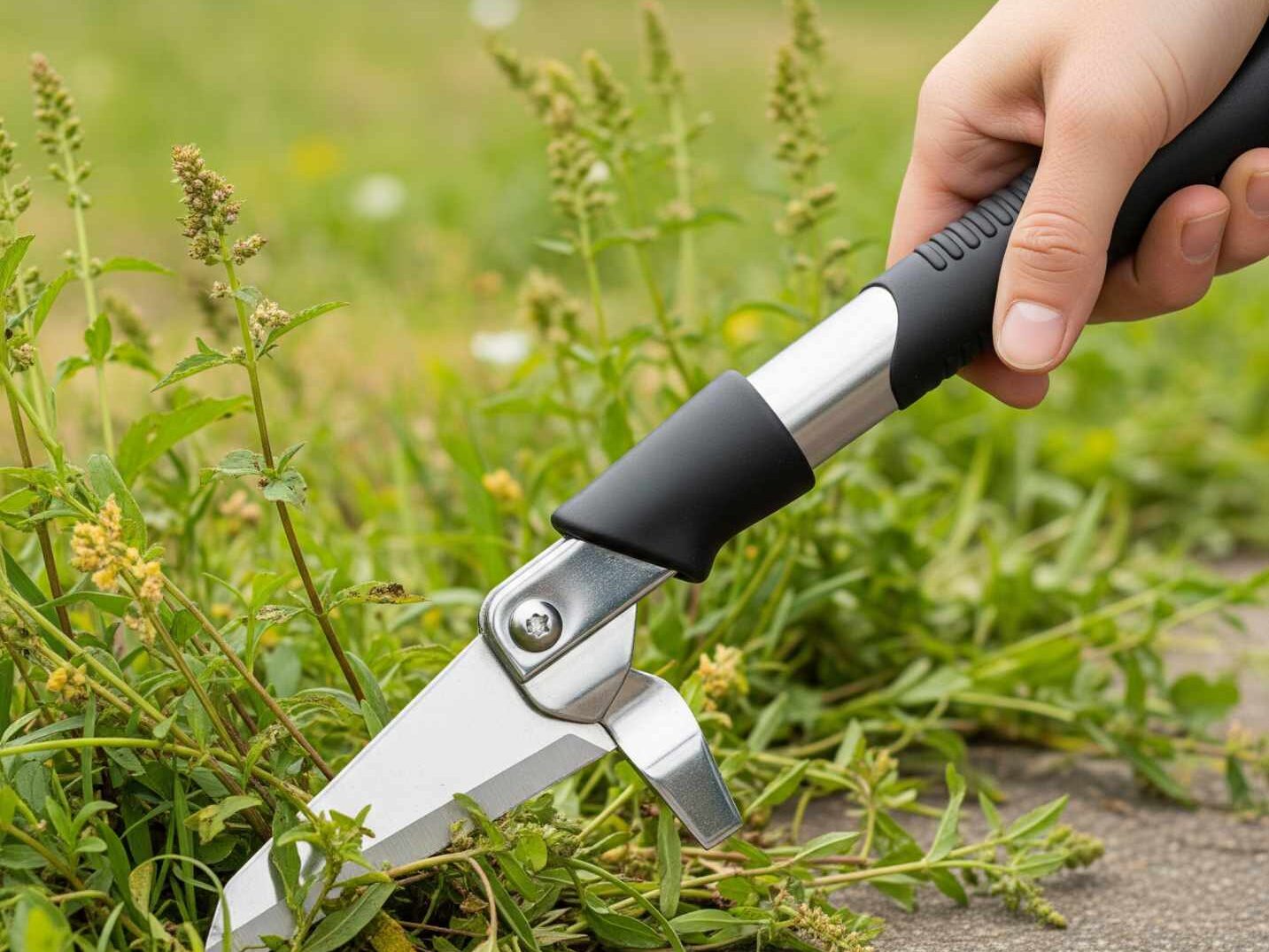
What it is: A handheld tool, often with a forked end, designed to pull out weeds from the root.
Why you need it: Weeds compete for nutrients, water, and space. Leaving them for too long weakens your dragon fruit plant.
This tool helps you remove weeds efficiently without disturbing plant roots. Especially during the monsoon in Himachal, weeds grow fast. Simply add this dragon fruit farm tools list and control the excess weed. A good weed remover helps you keep your field clean with less bending and back strain.
10. Face Mask

What it is: A basic protective mask made from cloth or non-woven material, worn over the nose and mouth.
Why you need it: While spraying pesticides or compost tea, or even while working in dusty conditions, a face mask protects your respiratory health.
mask is very important not just for dragon fruit farm tools list but for the safety for the farmer. Even organic inputs can irritate your lungs if inhaled. Himachal’s windy conditions can carry dust or spray droplets. A mask is a simple, affordable way to protect your health while working on the farm.
Tip of the Day: Invest in Quality Over Quantity
When you’re starting out, it’s tempting to save money by buying the cheapest farm tools and equipment you can find. After all, you’re already investing in poles, plants, and soil amendments. But here’s the truth: cheap tools usually don’t last, and they often don’t work very well either.
Let’s say you buy a low-cost cutter. At first, it works okay. But after a few uses, the blade becomes dull. You try harder to cut branches, and instead of a clean cut, you crush the stem. That small mistake can cause infections or slow the plant’s growth. Now you’re buying another tool—and possibly losing out on fruit.
On the other hand, when you invest in a quality cutter, it works smoothly and lasts longer. It gives you clean cuts every time. The same goes for gloves, moisture meters, sprayers—you name it. When your tools do their job well, you work more confidently and more efficiently. Farming becomes less stressful and more satisfying.
So even if your budget is tight, it’s better to buy fewer tools and make a 10 dragon fruit farm tools list—but make sure they’re good ones. Think of them as long-term partners in your farming journey.
FAQs
Q1: Are all these tools absolutely necessary to start dragon fruit farming?
Yes, each tool plays a role in your daily work. You may not need all of them on day one, but gradually having them will make your farming smoother.
Q2: Can I use regular scissors for pruning instead of a cutter?
Scissors may work early on, but they’re not made for thick dragon fruit branches. A cutter makes cleaner, safer cuts.
Q3: What kind of pH meter should I buy?
A digital pH meter is a good choice. It’s easy to use and works for both soil and water testing. Manual ones are cheaper but less accurate.
Q4: Can I use cheap gloves from the local market?
Yes, just make sure they’re thick enough. Dragon fruit thorns are sharp, so always check the quality before working.
Q5: Is a moisture meter necessary in Himachal’s climate?
Yes. Even in cooler regions, overwatering can happen. A meter helps you give water only when the plant actually needs it.
Q6: What size auger should I get?
A 2 to 2.5-inch wide auger is perfect for digging holes deep enough for dragon fruit poles.
Q7: How do I keep my tools clean to avoid plant diseases?
Wipe them down with diluted bleach or rubbing alcohol, especially if they touch the plants. Clean tools prevent fungal spread.
Q8: Why should I use a 200L drum instead of smaller containers?
It saves time. You can prepare large amounts of spray or compost mix in one go, which is helpful if you have many plants.
Q9: How often should I remove weeds?
At least every two weeks. Don’t wait too long—removing weeds early keeps your field healthy and easy to manage.
Q10: Do I really need a face mask for organic farming?
Yes. Even organic sprays can irritate your lungs. A mask keeps you safe, especially during heavy spraying or dusty work.
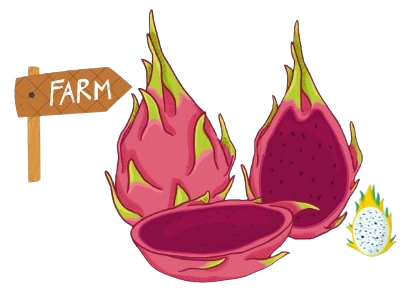
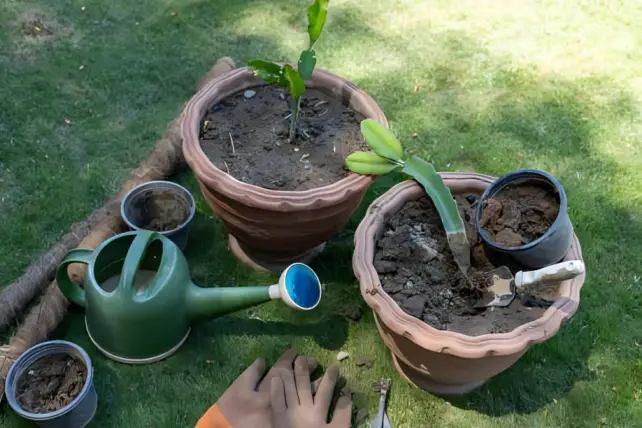
4 thoughts on “Must Have dragon fruit farm tools you need Top 10”